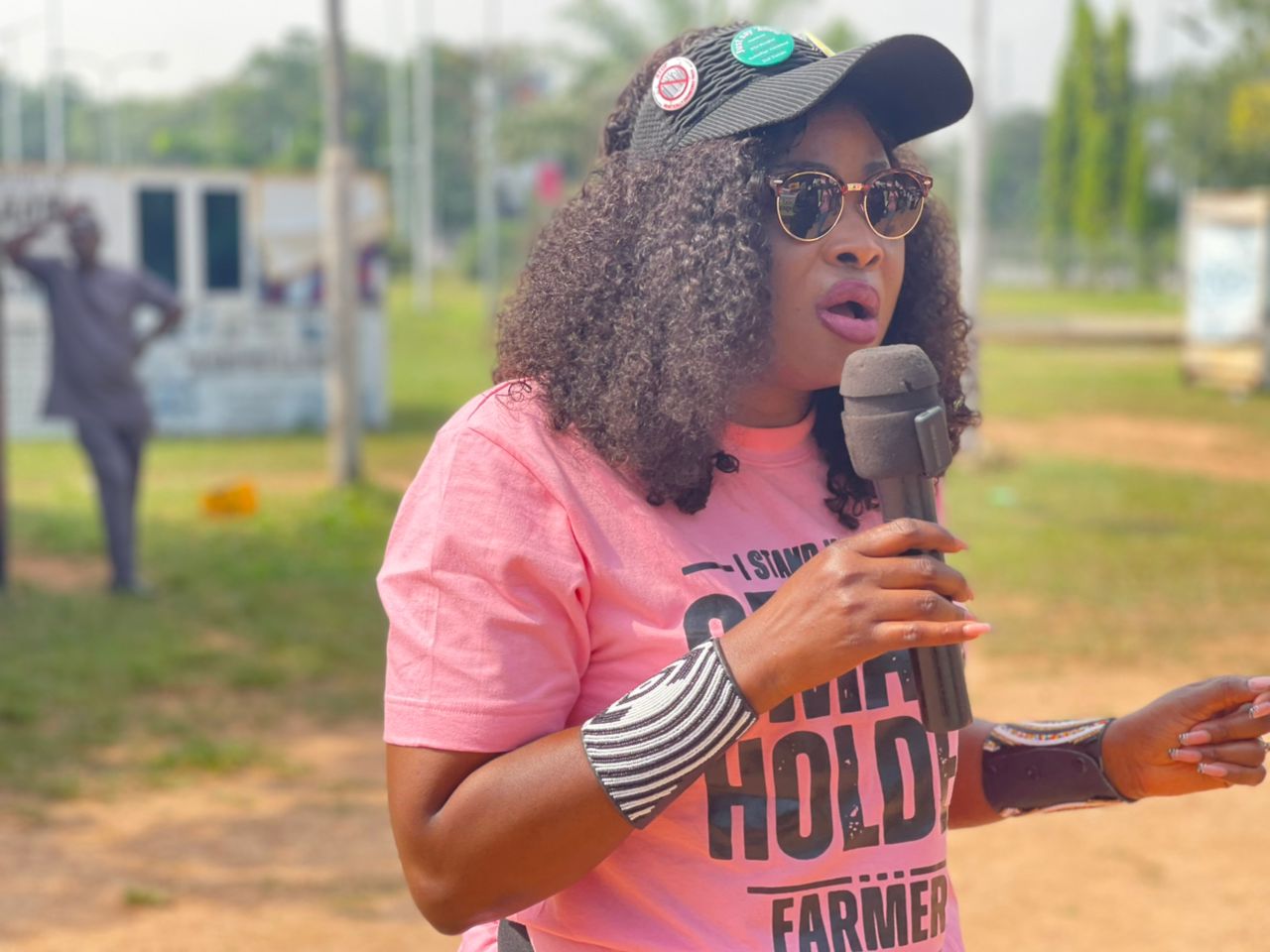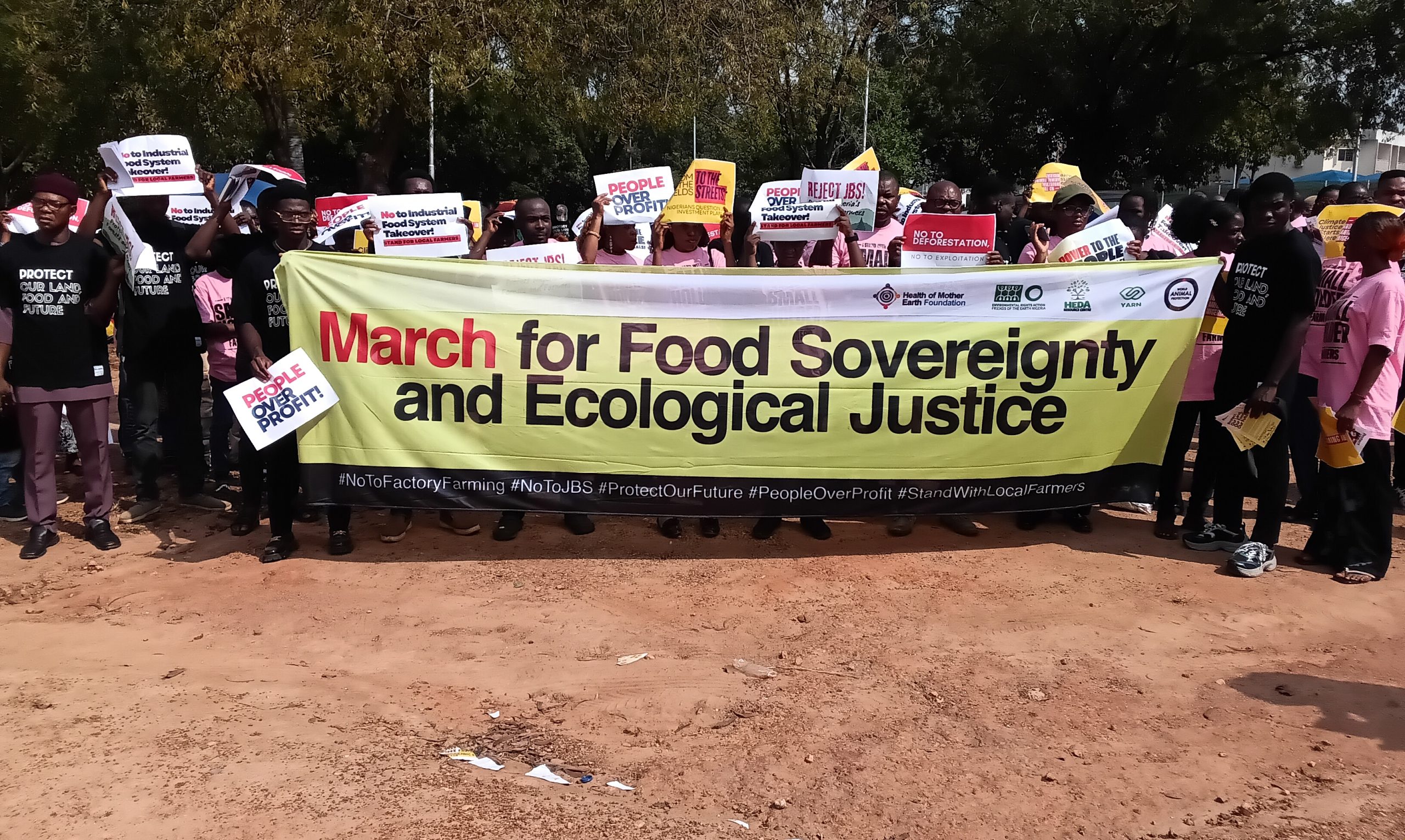Listeners:
Top listeners:
-
play_arrow
104.9FM Best rock music demo
-
play_arrow
Demo Radio Nr.1 For New Music And All The Hits!
-
play_arrow
Demo Radio Techno Top Music Radio
-
 play_arrow
play_arrow
Police Commissioner Launches Weapon and Riot Control Training for FCT Officers Democracy Radio
Industrial Agribusiness Expansion Threatens Communities, CSOs Warn

By Oluwakemi Kindness

A coalition of civil society organisations has raised fresh concerns over the expansion of large-scale industrial agribusiness operations in Nigeria, warning that multinational farming models could deepen land dispossession, environmental degradation and the displacement of rural communities if not properly regulated.
The coalition, which includes Environmental Rights Action/FoEN, Health of Mother Earth Foundation (HOMEF), HEDA Resource Centre, World Animal Protection, and the Youth in Agroecology and Restoration Network (YARN), made the call during a rally and stakeholder session in Abuja on Thursday.
They stressed that their position is not against investment by firms like the JBS Agribusiness Model, but against agricultural models that prioritise profit while exposing communities to land loss, pollution, economic decline and weakened food sovereignty.
“We are simply asking the right questions,” said Mariam Bassi-Olson, Deputy Executive Director of ERA. “Has an environmental impact assessment been done? Have communities been consulted? How is land being acquired? These are pro-accountability questions, not anti-development.”

The groups said industrial agribusiness models, often characterised by factory-scale farming, heavy land and water use, and intensive chemical and antibiotic application, have a global history of displacing small holder farmers and degrading local ecosystems.
HEDA’s Programme Manager, Mayowa Shobo, said investigations across communities in Nasarawa, Niger, and parts of the South-West showed a recurring pattern where multinational agribusiness companies take control of large areas of land and water resources, leaving local farmers economically vulnerable.
“These companies have a predictable pattern,” Shobo said. “They take over land, disrupt livelihoods and weaken local economies. Communities are left with polluted water sources and reduced access to essential services like healthcare and education.”
HOMEF, represented by Joyce Brown, noted that farmland in Nigeria is not just an economic asset but a cultural and survival lifeline.

“When industrial agriculture takes over, small holder farmers lose their livelihoods and communities lose autonomy over their food systems,” she said.
YARN’s Oluwuyi Seyi added that land grabs disguised as agricultural investment are increasing across Africa, often resulting in displacement and the erosion of indigenous farming systems.
The groups called on the Federal Government, National Assembly and Ministry of Livestock to:
• Enact and enforce strong land protection laws
• Ensure comprehensive Environmental and Social Impact Assessments (ESIAs) for major agricultural projects like JBS Agribusiness.
• Guarantee free, prior and informed community consent before land allocations
• Strengthen support for small holder farmers and agroecology-based food systems
• Improve transparency in agribusiness investment agreements

The coalition emphasized that Nigeria needs agricultural investment, but investment that strengthens local food systems, protects the environment and respects community rights.
“This is a call for responsible, people-centered development,” Bassi-Olson said. “The rights of communities and future generations must come first.”
Written by: Democracy Radio
#DemocracyRadio #eraction #FMAgricNG #HEDAFRICA #HenshawKen #HomefNigeria #MoveTheWorld. #NnimmoB
Similar posts
Copyright Democracy Radio -2024


